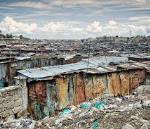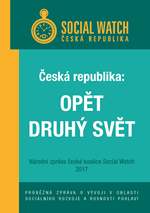Published on Wed, 2017-09-27 15:09
The Arab NGO Network for Development (ANND) launched a book on the enabling environment of civil society in the Arab region. The publication aims to present an overview of the current situation of civil society organizations in Tunisia, Egypt, Lebanon, Iraq, Syria, and Palestine. It uses several country-specific indicators regarding the establishment of civil society organizations and their success. The current conflicts raging in the Arab region constitutes a serious challenge, especially in lack of attention to laws regarding the work of civil associations, in addition to the shifts faced in funding. The publication highlights several legal challenges, especially those resulting from the lack of commitment to the principles of the separation of powers, as applied by democratic societies, as laws and regulations are often politicized. The book includes several recommendations to invigorate the work of civil society organizations in the regional, in order to consolidate the values of justice, equality, and sustainable development. |
Published on Thu, 2017-09-21 11:38
On 7 and 8 July 2017, the summit meeting of the G20, the group of 19 major economies and the European Union, was held in Hamburg, Germany. Media perception of the event was marked by the US President’s appearance and the conflicts in climate and trade policies. In contrast, other topics, including the G20 activities regarding the implementation of the 2030 Agenda, took a backseat. Hardly any attention was given to the Hamburg Update of the G20 Action Plan on the 2030 Agenda. Many observers representing academia and civil society viewed the Summit resolutions as insufficient or even counterproductive. Above all, they criticized the blind faith in economic growth reflected by the Summit documents and the one-sided focus on private investments to finance development. |
Published on Fri, 2017-09-15 14:45
The Kenya Social Watch report registers “heavy and unprecedented investment in mega-infrastructure projects.” Instead of spurring equitable economic growth these initiatives are placing on the national economy an unbearable debt burden of some US$ 50 billion. The report states that “the growth-leading sectors have not only been broadly based but also have performed poorly, particularly in respect to poverty-reduction and equity-inducing policy dispensations and accompanying strategic instruments. Decreased activity in the agricultural and manufacturing sectors have induced a jobless growth that has had the effect of a flood in the wake of which not all the boats could be lifted. Instead it has rendered Kenya one of the most unequal societies in the world.” |
Published on Fri, 2017-09-15 14:42
When the democratization process started, quarter of a century ago, the Czech Republic hoped to raise its social, environmental, economic and legal realities to “First World” standards. The Czech Social Watch coalition concluded in its alternative report to the United Nations that “we are back in the Second World”. The chapters on People, Planet, Prosperity, Peace and Justice and Partnerships provide evidence of an increasing gap between East and West in Europe. “Apart from indisputable internal responsibility, international cooperation has been lacking and it is not surprising that trust in the EU is decreasing in new member states”. The report complains about underrepresentation of Eastern Europe internationally and sees “ethnically motivated murders of Czech and Polish workers in Great Britain by neo-Nazis in connection with Brexit” as “only the tip of the iceberg”. |
Published on Thu, 2017-09-14 11:54
New Census numbers released this week show that overall incomes have risen in the past ten years in Canada. This is excellent news. Economic growth driven by rising wages is growth we can feel, growth that translates into a better life. However, not all Canadians are having the same experience. When you look at different parts of Canada, and different Canadians, you see some important differences. This Census release doesn’t include the differences in income and poverty experienced by racialized, indigenous, and immigrant groups. For that information, we have to wait another month. However, you can already see differences in the wages of men and women and very different levels of poverty depending on which city you live in (or if you live in a city at all). |
SUSCRIBE TO OUR NEWSLETTER







